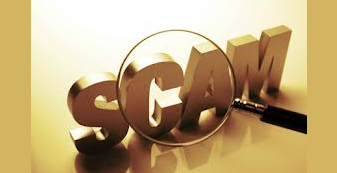Warning on bank phishing scams
Indian community, we are sure, has been inundated with calls from people posing to be someone from a bank saying the person had been overcharged bank fees or some even claiming to be from ATO saying that the tax office owed them money. These irritating calls come often in Indian homes as community talks about such scams and how they were duped to believe and instructed to go to a local post office where one is expected to transfer a small amount in return for a promise of a refund of thousands of dollars. These scams through emails and hoax callers are a daily nuisance as one needs to be weary of such scams and report them to the Fair Trading office.
NSW Fair Trading Commissioner Rod Stowe is warning consumers across the state about phishing scams designed to trick people into believing they have been contacted by banks or other financial institutions.
Mr Stowe said Fair Trading had been alerted to a current scam this week by a Coffs Harbour businessman and had also received numerous enquiries about phishing scams this year including from other residents in Coffs Harbour; residents in Morpeth and Mt Hutton in the Hunter region;
Blacktown, Baulkham Hills and Dulwich Hill in the Sydney metropolitan area; and, Thurgoona, Griffith and Trunkey Creek in the south of the state.
“Scammers sent the Coffs Harbour businessman, Steve Little, an email telling him that his bank account had been temporarily limited and that to remove the limitation, he should click on a link and confirm his details,” he said.
“This is a typical phishing scam that tricks people in to giving out their personal and banking information, which is then used to steal money from accounts.
“The link takes you to a fake website, generally quite convincing in appearance and branding, which often convinces the unwary they are dealing with a legitimate financial institution.”
Mr Stowe said Mr Little had received the email claiming to be from a bank with which he did not have an account.
“Mr Little knew therefore that the email was a scam and he alerted Fair Trading,” he said, “but for anyone receiving such an email who did have an account with that particular bank, it’s likely they could easily be scammed.”
Mr Stowe said warning signs include unsolicited emails or text messages with links to websites that appear to be genuine, but will have subtle variations, such as in the URL address.
“Other warning signs include: incorrect use of your name; spelling and grammar errors in the email or text; or claims that your details are required for security checks or in order to receive a refund on bank fees,” he said.
“Always contact any bank or financial institution independently to verify any communication you have received is genuine.
“Never send money or give credit card or online account details to anyone you do not know and trust.
“Do not give out your personal, credit card or online account details over the phone unless you made the call and know that the phone number came from a trusted source.”
For more information about scams go to: www.scamwatch.gov.au or www.fairtrading.nsw.gov.au
Short URL: https://indiandownunder.com.au/?p=2182

